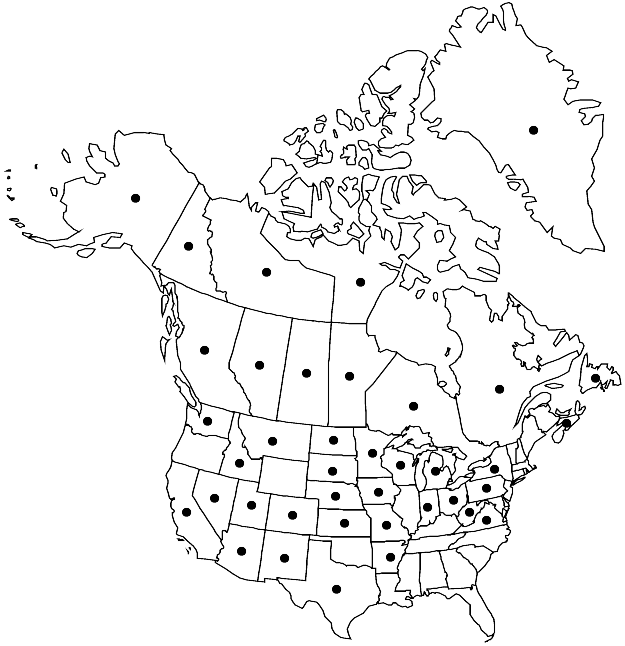Conardia compacta
Phytologia 33: 295. 1976.
Plants in dense to ± loose mats. Stems erect-ascending or creeping; pseudoparaphyllia foliose or filamentous. Stem leaves crowded, homomallous when dry, gradually narrowed to apex, slightly concave; alar cells usually many, region reaching from margin to costa at insertion or nearly so; laminal cells 5–9:1; basal cells shorter, broader. Specialized asexual reproduction by papillose rhizoidal gemmae on abaxial costa surface. Perichaetia with inner leaves ± suddenly narrowed to apex, not plicate, margins irregularly denticulate distally, apex acuminate, laminal cells smooth. Seta orange-yellow or at base reddish, 0.8–1.4 cm. Capsule with annulus separating, 1- or 2-seriate; operculum conic to short-rostrate; exostome teeth lanceolate, brownish yellow, external surface reticulate or reticulate-striate basally or with portions cross striolate; endostome cilia to 1/2 segment length. Spores finely papillose.
Habitat: Damp cliffs, limestone, swamps on logs, stumps, humus, bark at base of trees; low to high elevations
Distribution

Greenland, Alta., B.C., Man., Nfld. and Labr. (Nfld.), N.W.T., N.S., Nunavut, Ont., Que., Sask., Yukon, Alaska, Ariz., Ark., Calif., Colo., Idaho, Ind., Iowa, Kans., Mich., Minn., Mo., Mont., Nebr., Nev., N.Mex., N.Y., N.Dak., Ohio, Pa., S.Dak., Tex., Utah, Va., Wash., W.Va., Wis., Mexico (Baja California, Puebla), Central America (Guatemala), n, c Europe, Asia (Kashmir), Atlantic Islands (Iceland).
Discussion
Selected References
None.
